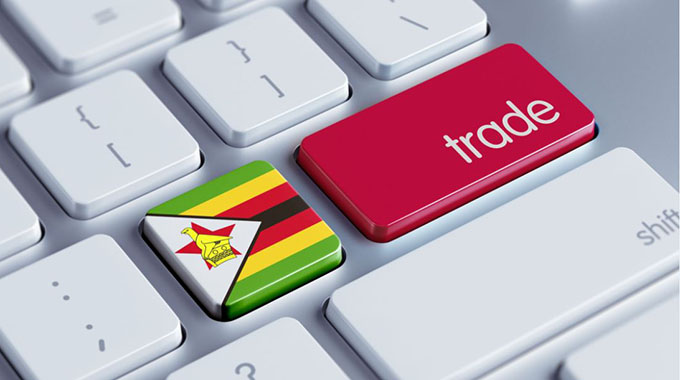Positioning for intra-Africa trade

Sitsthengisiwe Ndlovu
The recent economic rescue package $18 billion (9 percent of GDP) to different sectors of industry represents a significant fiscus stimulus that will be able to resuscitate businesses, nevertheless, safeguard Zimbabwean families against the effects of Covid-19 pandemic.
The Government has further provided a moratorium on import duties on selected raw materials up to the end of 2020.
Generally, governments all over the world are mandated to create enabling environments for businesses so as to stimulate economic growth.
In well performing economies there is a Contingency Fund that becomes useful in mitigating against unforeseen catastrophic disasters like Covid-19.
The stimulus package has been undertaken against a back drop of an economy with limited monetary and fiscal space. It becomes urgent and important therefore for various stakeholders, with private sector in the lead, to formulate business strategies on the crest of the injection of funds from the Government for the economy to be resuscitated.
The Zimbabwe National Trade Policy (ZNTP) and the Zimbabwe National Export Strategy(ZNES) frameworks provide a comprehensive economic trajectory that should ensure the growth of the economy. The economic blue prints drafted pre Covid-19, remains relevant today and will still do so post Covid-19 period.
Locating Zimbabwe businesses within these framework firmly positions Zimbabwe to participate effectively in the AfCFTA intra-regional trade will spur economic growth for Zimbabwe.
The private sector as champions of entrepreneurship have the responsibility to create jobs and are equally mandated to identify trade barriers that impede trade. It is the role of governments to timeously address the impediments and create an environment that will not only attract investors, but where also trade will be conducted in a manner that is timely, cost effective, reliable and predictable.
The advent of the Africa Continent Free Trade Agreement (AfCFTA) will present an opportunity that will reduce reliance on overseas markets by most African countries.
To exploit the opportunities and mitigate against threats that AfCFTA will present some housekeeping by the private sector, Chambers of Commerce, Civic Society and Woman Organisation.
The associations will be necessary to identify the gaps that may be presented by Competition, Intellectual Property Rights,Trade Remedies and disputes within the huge market that will be created by the African Continental Free Trade Agreement.
Competition
Regional Economic Communities have Competition Laws or policies that vary institutionally.
The AfCFTA Protocol on Competition will rationalise the variance that may exist within the countries.
Business cartels, unfair competitive behaviour may exist at international level and present hurdles well beyond the control of any government. It becomes prudent for the private sector and various stakeholders to be alive and vigilante to such tendencies.
Fortunately Zimbabwe is one of the 23 countries that have competition regimes and laws and she also appears in the list of 15 countries that have these laws that are strictly enforced as observed by the World Bank.
Research by UNCTAD reveals that the gender dimension of trade openness may in the short term, increase competition for national businesses and negatively affect vulnerable groups who are mainly small holder farmers, women and youths.
Local export oriented firms rely on competitive advantage rather than on comparative advantage to dominate the international markets.
Due to the inherent weak bargaining skills found in women working in Export Processing Zones, majority of them become sources of cheap labour.
It becomes important for policy makers and stakeholders to gender mainstream policies so as to protect women from exploitation by these export value chains.
Intellectual property rights
The AfCFTA Intellectual Property Rights Protocol is premised on that IPR is a boost to intra-regional trade and regional integration. Existence of transparent Intellectual Property Rights in a country attracts quality foreign direct investment (FDI) as it upholds confidence in investors and local entrepreneurs.
The concern according to research is that in Africa novelty occurs within an informal setting making it difficult to design IPR laws that protect novelty including traditional knowledge.
As Zimbabwe escalates industrialisation, there will be an increase of novel goods, services and ideas. Demand for copyrights, patents, trademarks, certification marks will rise necessitating streamlining IPR laws that will reflect the interest of Zimbabwean businesses.
Zimbabwe is a member of the African Regional Intellectual Property Organisation (ARIPO) which comprise of 19 member states.
At national level there is the Zimbabwe International Property Office (ZIPO). However it is important to remember that the IPR regimes should be enablers that support industrial development and not stifle it.
Disputes and trade remedies
Annex 9 to the AfCFTA Protocol on Trade specifically deals with Trade Remedies. Guided by this protocol, AfCFTA has launched an online Continental portal to monitor and report Non-Tariff Barriers (NTBs) that may impede trade.
This is but one of the many avenues to address disputes that may arise through trade.
In addition, locally the Competition and Tariff Commission can be approached if there are activities perceived as unfair practices that may cause injury in the domestic market.
Based on the above it is apparent that the stage of industrial development has been set. Zimbabwe has to ensure that she becomes a dominant player in the Africa intra-regional trade by expanding into continental value chains boosting the country’s revenues well beyond the 9 percent of GDP economic rescue package.
◆ Sitshengisiwe Ndlovu: MBA/UNCTAD: Trade and Gender Linkages/ IAC Dip/Cert: Trade in Services and SDGs: Robert Schuman Centre of Advanced Studies/IDEPCert: Making the African Continental Free Trade Agreement Work. She writes in her personal capacity and she may be reached on email address:[email protected] For more on trade matters visit her Blog on website:owitzimbabwe.org










Comments